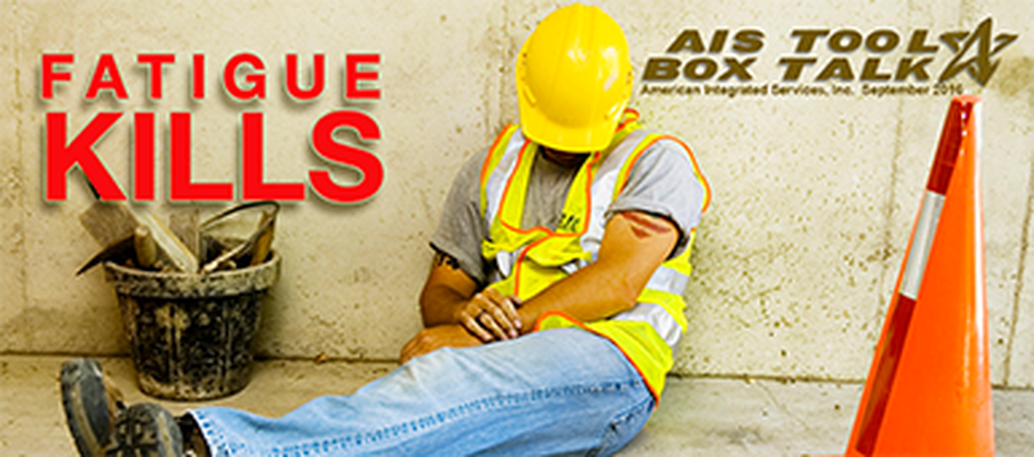|
Sleep--or lack of it-- is an important safety topic that is easy to overlook. We've all heard people talking about how tired they are as if it were something to be proud of--we're working hard, so naturally, we're tired! But fatigue can be a killer on a jobsite. If we are truly committed to safety, we must guard against fatigue in ourselves and our teams. While we cannot regulate how much sleep our employees get, we must consider fatigue and sleep deprivation in our training topics, fit-for-duty screening, and as a priority in our safety culture.
According to a recent study published by the National Sleep Foundation, 56% of Americans report that they do not get as much sleep as they need on work days. A sleep deficit can impair performance by affecting judgment, concentration, motor skills, response times and more. In fact, a significant lack of sleep can affect mental and physical performance the same way alcohol will, and to the same degree. Spread the word about fatigue and the importance of adequate sleep. Here are some pointers for improving the quality and quantity of sleep:
Remember that caffeine is not a substitute for sleep. If you are too tired to do your job effectively, coffee will not fix it. The only cure for sleep deprivation is sleep. For more on fatigue and sleep deprivation on the job, check out this article from Industrial Safety and Hygiene News. Comments are closed.
|


9/26/2016